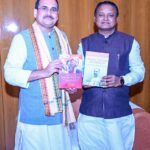TOXIC RESIDUES OF MACAULAYISM
- By : Anirban Ganguly
- Category : Articles
The sharp protests against Wendy Doniger’s convoluted and confused reading of the history of Hindu religion are justified
Writing on October 12, 1836, Thomas Babington Macaulay gleefully informed his father that their schools were “flourishing wonderfully” and that the “effect of this education on Hindoos is prodigious” because “no Hindoo who has received an English education ever continues to be sincerely attached to his religion [though] some continue to profess it as a matter of policy.”
Macaulay rejoiced to think of the effects that such an education would have on the mind of young India and predicted that in the eventuality of the physical empire perishing someday this education would ensure the perpetuation of the “imperishable empire of our arts and our morals, our literature…”
Charles Trevelyan, colonial administrator and educator, also revealed the objective of this education when he argued that there was “no class of our subjects to whom we are so thoroughly necessary as those whose opinions have been cast in the English mould…” Trevelyan saw this class soon becoming the majority among opinion makers. He also gave away the deeper design of the education he was institutionalising in India when he argued, that “as long as the natives are left to brood over their former independence, their sole specific for improving their condition is, the immediate and total expulsion of the English” thus it was “only by the infusion of European ideas that a new direction” could be “given to the national views”. He saw this happening in the new schools, where young men “turn to the prospect of improving their national institutions on the English model and instead of regarding us with dislike, they court our society, and look upon us as their natural protectors and benefactors: The summit of their ambition is, to resemble us…”
In course of time, Trevelyan and Macaulay’s opinion makers came to dominate the discourse on India, especially in India. Ananda Coomaraswamy must have been describing this lot when he remarked that, “We, who think we are educated and progressive, we who attend conferences and sit on legislative councils…we ourselves have despised and hated everything Indian” and yet “we never thought that the fault was in ourselves”. Another near forgotten philosopher and cultural critic, KC Bhattacharya, succinctly described the effects of the education, institutionalised by Macaulay-Trevelyan, on those who were its beneficiaries. Such an education, Bhattacharya argued, had not “so far helped us to understand ourselves, to understand the significance of our past, the realities of our present and our mission of the future. It has tended to drive our real mind into the unconscious and to replace it by a shadow mind that has no roots in our past and in our real present.”
The standard bearers of Macaulay’s imperishable empire of the mind thus became the possessors of just such a ‘shadow mind’. It is these who, in the present times, laud the fragmented deconstructionist reading of India, who shower approbation on ‘alternate approaches’ to the history of Hindus while ignoring or suppressing the actual alternate readings of it and find the fact that gods need to be protected, as ridiculously strange. Sita Ram Goel described this section and its expressions as “the residue of Macaulayism”.
In their reading of India and especially in their interpretation of Hindu civilisation, this section has always encouraged the creation of, what Rabindranath Tagore once termed in exasperation, a “really nightmarish account of India”. An account which, in his words, never viewed “Bharatvarsha from Bharatvarsha’s own perspective” and which led to the situation where, “since our very childhood we learn to demean her and in consequence we get demeaned ourselves”.
The protests — academic, legal and democratic — against Wendy Doniger’s convoluted and confused reading of the Hindus is thus a great step forward towards scrapping these last resistant residues of Macaulayism. Once in a while thus it is of great service to rise in protection of our gods; at least it is better than worshipping false ones.

















